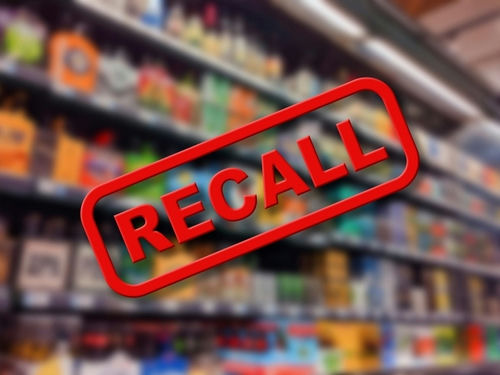America’s food safety system just faced a rare test as Walmart recalls Great Value shrimp after the FDA flagged radioactive Cesium-137 contamination—a warning sign for every family who values clean food and common-sense oversight.
FDA Flags Radioactive Contamination in Walmart Shrimp Imports
On August 18, 2025, the U.S. Food and Drug Administration issued a public advisory warning consumers not to eat specific lots of Great Value raw frozen shrimp after samples tested positive for Cesium-137, a radioactive isotope. U.S. Customs and Border Protection first detected the contamination at four major ports: Los Angeles, Houston, Miami, and Savannah. The FDA’s rapid response included further testing and immediate recall recommendations, preventing contaminated products from entering the U.S. food supply. The contaminated shipment originated with PT. Bahari Makmur Sejati, a seafood exporter in Indonesia, highlighting vulnerabilities in international supply chains.
The FDA clarified that while the detected Cesium-137 levels were below the acute intervention threshold, repeated exposure could increase cancer risk over time. The FDA’s Derived Intervention Level is 1200 Bq/kg, but the shrimp tested at 68 Bq/kg—a reminder that even low levels of radiation in food are unacceptable for American families seeking safety and trust in their groceries. Walmart swiftly initiated a recall and worked with authorities to ensure none of the affected shrimp reached store shelves, prioritizing customer safety and brand integrity. Federal agencies’ vigilance demonstrates the importance of maintaining robust screening and oversight, especially as the volume of imported seafood continues to rise.
Regulatory Oversight and Conservative Concerns on Food Safety
Food safety is a cornerstone of American family values and a vital area where conservative principles of transparency and accountability matter most. This rare radioactive contamination incident underscores why strong border enforcement and regulatory vigilance are essential—not only to protect public health, but to safeguard confidence in the nation’s food supply. The FDA and U.S. Customs acted decisively, but the episode also exposes risks embedded in global sourcing and “just-in-time” supply chains favored in recent decades. Conservatives have long warned that globalist trade practices can erode domestic standards and introduce hazards, making cases like this a wake-up call for renewed American oversight.
Historically, radioactive contaminants in food imports have been tied to regions affected by nuclear accidents, such as Fukushima in Japan. However, the detection of Cesium-137 in Indonesian shrimp is virtually unprecedented in recent U.S. history. This event proves that even well-known retailers like Walmart are not immune to risks introduced by complex international supply chains. The conservative call for prioritizing American food security and domestic production finds new urgency as the public reacts to this latest scare. The fact that contaminated products were intercepted before reaching consumers demonstrates the effectiveness of well-funded screening, but also the need for continuous vigilance.
Broader Industry Impact and Consumer Confidence
The immediate recall and the FDA’s transparency have helped maintain public trust, but there are broader implications for the seafood industry. Consumers in twelve states—Alabama, Arkansas, Florida, Georgia, Kentucky, Louisiana, Missouri, Ohio, Oklahoma, Pennsylvania, Texas, and West Virginia—were directly affected by the recall, fueling calls for stricter import controls and robust traceability in food supply chains. Walmart and its supply partners face financial losses and increased scrutiny, while Indonesian exporters could confront new restrictions and requirements. Heightened awareness of food safety—especially around radioactive contamination—reinforces the conservative demand for government accountability and responsible corporate practices.
https://twitter.com/CBSNews/status/1694107211823343616
Industry experts agree that while the Cesium-137 levels did not present an immediate threat, any radioactive contamination is unacceptable. Health physicists warn that chronic exposure—even at low levels—raises cancer risk, validating the FDA’s caution and swift action. The episode stands as proof that strong border controls and transparent regulatory procedures are not just bureaucratic necessities, but critical defenses for the American public. Conservatives, who value individual liberty and limited government, recognize that food safety is one area where effective oversight pays real dividends for families and communities.
Sources:
LA Times, “Don’t eat these potentially radioactive shrimp, FDA warns”
Axios, “Radioactive shrimp recall: FDA warns against these Walmart brands”
FDA, “FDA Advises Public Not to Eat, Sell, or Serve Certain Imported Frozen Shrimp”

